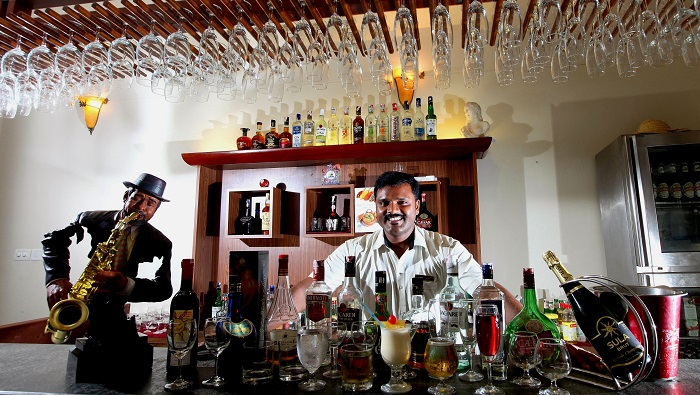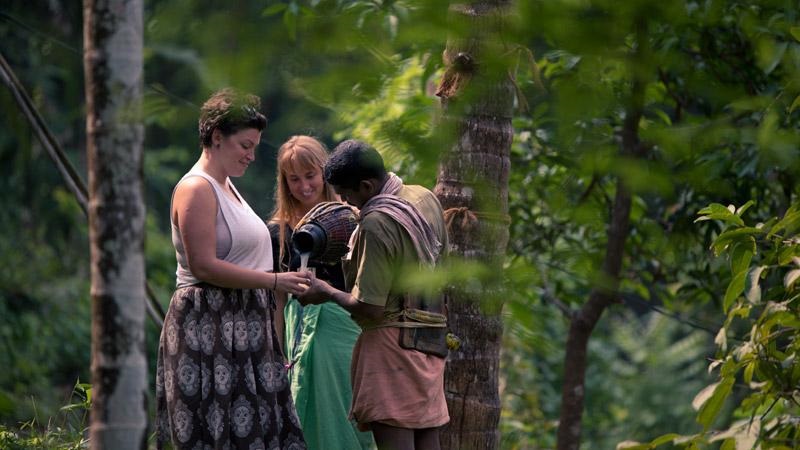In a strategic move to enhance Kerala’s appeal as a premier destination for tourism and MICE (Meetings, Incentives, Conferences, and Exhibitions), the Kerala Cabinet has approved a progressive liquor policy for the current financial year 2025-26, aimed at modernizing hospitality infrastructure and aligning beverage services with global tourism standards. This progressive approach aims to modernize hospitality, attract high-profile events, and cater to international expectations. Key features include relaxed regulations on liquor service in hotels and new licensing in industrial and IT zones. The policy also uniquely promotes “Kerala Toddy” and local beverage production, positioning Kerala as a diverse and experience-rich destination.




The Kerala Travel Mart (KTM) Society, the state’s premier travel trade body, lauded the move, terming it a timely intervention to overcome long-standing hurdles that have hampered Kerala’s positioning as a global MICE destination. KTM Society President Jose Pradeep emphasized that the lack of flexibility in the earlier policy had been a “major constraint for MICE tourism that has great potential in Kerala.” He added, “The last KTM conclave (in September 2024) saw experts stressing the need to boost MICE tourism in the state. They had opined that relaxation in the liquor policy was a key factor for its smooth execution.”
For years, stakeholders have pointed out that the impracticality of rigid excise norms limited Kerala’s ability to attract and host high-profile international conferences, business summits, and destination events. The newly approved provision allowing three-star and above hotels to serve liquor on dry days with a one-day permit is expected to provide the hospitality industry with much-needed operational flexibility. This is particularly significant for hotels that regularly host corporate meets, conventions, and wedding events.


Further reinforcing Kerala’s potential as a MICE and cruise tourism hub, the policy also allows the sale of liquor in industrial parks and IT corridors — both of which have been emerging as new-age venues for international business summits and corporate off-sites. KTM Honorary Secretary S Swaminathan said, “Trade conferences and international summits are the biggest potential for MICE tourism. The relaxations granted in industrial and IT parks will indirectly benefit MICE tourism.” He also welcomed the provision allowing liquor service on luxury cruise ships, noting that it will “inject energy into the cruise tourism sector,” another growing niche for Kerala.
An important cultural revival woven into the policy is the promotion of ‘Kerala Toddy’ — the state’s traditional beverage — as a branded tourism product. Revamped toddy shops will serve hygienic, authentic Kerala cuisine alongside freshly tapped toddy, offering visitors a unique culinary and cultural experience. Star hotels and certified resorts can now tap toddy from palms within their premises and serve it exclusively to guests, presenting new possibilities in wellness tourism, Ayurveda retreats, and experiential stays.
The new liquor policy also encourages the domestic production of beer, IMFL, and low-alcohol beverages derived from fruits and local produce. This opens up scope for boutique liquor labels, farm-to-glass experiences, and locally rooted beverage tourism — all of which can add value to Kerala’s already diverse tourism offerings.
As Kerala Tourism continues its efforts to transform the state into a high-value, experience-rich destination, the excise policy reforms stand out as a strategic enabler. With increased ease of doing business for the hospitality sector and the Tourism Department playing a consultative role in implementation, Kerala appears poised to scale new heights in the global tourism and MICE landscape.
Key Policy Highlights Supporting Tourism and MICE:
Bar Licences for Industrial and Tourism Zones:
In a major boost for MICE and business tourism, the policy allows the opening of bars within industrial parks. This reform is expected to benefit integrated townships, business hotels, and convention centers housed in these hubs. Additionally, select restaurants and resorts in designated tourism destinations will now be permitted to serve beer and wine during peak tourist seasons, enhancing the leisure experience for international and domestic guests.
Licensing in Collaboration with Tourism Department:
Modalities for granting beverage licences will be worked out in consultation with the Kerala Tourism Department, ensuring that policies are tourism-friendly while retaining regulatory oversight.


Revamping Toddy Culture for Culinary Tourism:


A unique attraction for experiential travelers, the state plans to rebrand and promote traditional toddy under a new label — ‘Kerala Toddy’. Revamped toddy shops, redesigned as hygienic food joints, will serve as cultural food destinations where visitors can sample authentic toddy with local cuisine in a traditional ambiance.
On the production front, the government plans to promote coconut cultivation specifically for toddy tapping, aiming to boost availability and reduce wastage. Currently, the permitted yield per palm is capped at 2.5 litres, but with improved productivity, this limit will be revised. Mr. M.B. Rajesh, Minister for Excise, Government of Kerala, noted that the existing ceiling, originally set as a safeguard against adulteration, now leads to significant surplus going to waste. To address this, Kudumbashree units will be empowered to create value-added products from the excess toddy. Additionally, a track-and-trace system will be implemented to monitor and regulate the inter-district movement of toddy, ensuring transparency and quality control.
Toddy Tapping in Resorts and Hotels:
Three-star and above classified hotels, along with premium resorts, will be permitted to tap toddy from palms within their premises, for exclusive guest consumption. This curated experience will offer visitors a taste of Kerala’s rich agrarian heritage and organic lifestyle — a perfect fit for wellness retreats and high-end eco-resorts.
Encouragement of Local Liquor Production and Exports:
The policy promotes the domestic production of IMFL and beer, paving the way for job creation and boosting Kerala’s potential in the export of value-added alcoholic beverages. This move is likely to support hotels and resorts in offering locally crafted premium beverages, catering to tourists seeking regional flavors.
Support for Hospitality Investors:
The government also plans to renew and reclassify hotels, streamlining licensing and compliance processes to support tourism entrepreneurs. Bar license fees have been revised moderately from ₹30 lakh to ₹35 lakh, maintaining balance between regulation and industry viability.
Beer & Wine Cafes in IT Parks and Urban Centres (in Progress):
Draft rules are being framed for opening pubs and beer-wine cafés within IT parks — an upcoming move that aligns with Kerala’s focus on attracting global IT and MICE clients and offering them after-work leisure options.
Reinvigorating Beverage Tourism and Culinary Trails
With a renewed emphasis on traditional drinks, farm-based alcohol production, and hygienically modernized toddy shops, Kerala is positioning itself as a culinary tourism hotspot. Additionally, proposed laws to produce low-alcohol beverages from fruits and farm produce could spark innovations in farm-to-glass tourism, integrating Kerala’s agriculture and hospitality ecosystems.
Future Outlook
While certain contentious points — such as the removal of dry days and distance limits for toddy shops — are under further cabinet review, the overall thrust of the policy supports Kerala’s goal to become a global MICE and leisure tourism destination. The synergy between the Excise and Tourism Departments in framing policies marks a positive step towards responsible tourism growth.
Also Read
Positive Industry Outlook Reflected at ITB Berlin 2025
Watch on Youtube
